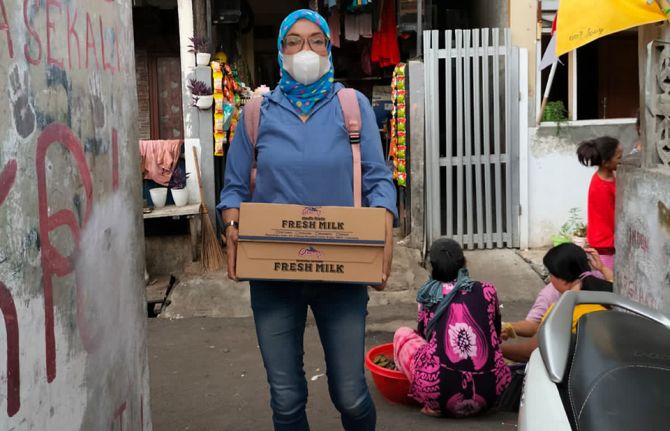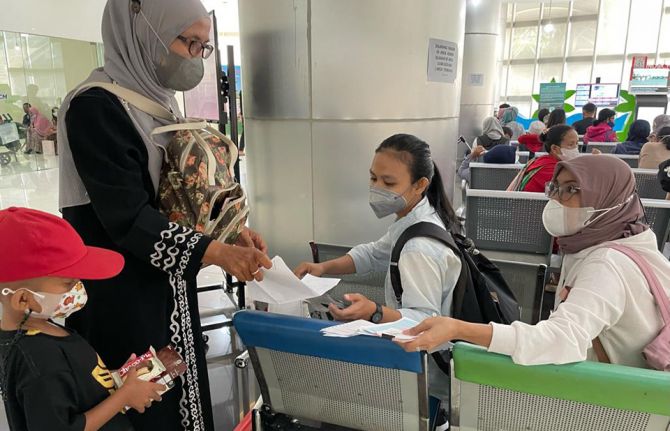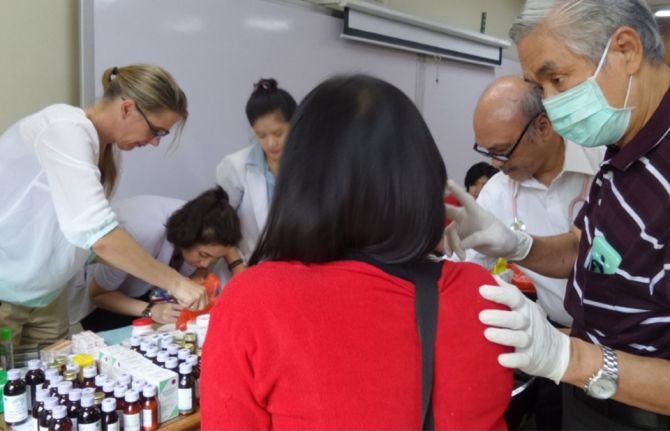



Feature Story
Indonesia: Helping one family at a time through Lentera Anak Pelangi’s One Child One life program
10 October 2022
10 October 2022 10 October 2022Estimates indicate that in Indonesia in 2021, only 25% of the 19,000 children living with HIV received life-saving antiretroviral therapy and 2,400 children died from AIDS-related causes.
Despite global scientific breakthroughs providing more effective treatment for adults and children, for many children living with HIV in Indonesia access to antiretroviral therapy remains elusive. Exacerbating the situation is the entrenched societal and gender inequalities that present barriers to women, adolescents and children to access quality prevention and care services.
With many competing priorities, national and local commitment of resources to scale-up efforts to eliminate vertical transmission of HIV and increase ARV coverage among children living with HIV remain limited. This has resulted in insufficient investment in community-based services for women, adolescents and children living with HIV.
To reduce AIDS-related deaths among children, and ensure children and adolescents living with HIV have access to high quality comprehensive care and support, Indonesia must expand community-based services and community-led programmes tailored to the needs of these very vulnerable yet often left-out groups.
Lentara Anak Pelangi (LAP), an organization that provides HIV services, including psychosocial support, for children and adolescents living with HIV in Jakarta has seen some successes through their One Child One Life program.
“We want these adolescents to be the next generation of positive leaders and influencers who inspire other teens living with HIV” said Prof. Irwanto, founder of Lentera Anak Pelangi.
The One Child One Life program provides disclosure and post-disclosure support, mental health assessment and care as well as education.
“Lentera Anak Pelangi has supported my daughter since she was very young. LAP’s in-person and online activities have been very helpful for her. Through Sekolah LAP, my daughter has started to learn how to build her self-confidence and open her mind to learn more things. I also learned the meaning of this illness and find friends facing the same struggle and fight to continue to be healthy,” Explained the mother of one LAP beneficiary.
“My son and I have been greatly helped by LAP’s education support. During the pandemic, we often received sembako (staple foods). My son loves to be part of LAP because he gets to meets other teens who share similar circumstances. We also receive information on how to provide care for our family,” another mother said.
Through the One Child One Life program, children living with HIV have been supported to suppress their HIV viral load, return to school and participate in youth support groups. LAP also supports children with special needs and supplemental nutritional support when required. However, their coverage remains small due to funding and human resource constraints.
“Science has made it possible to diagnose and treat HIV. We have come a really long way in 40 years. In Indonesia, we must eliminate vertical transmission of HIV and ensure that all children living with HIV access life-saving antiretroviral therapy and quality care including psychosocial support when needed.” said Krittayawan Boonto, the UNAIDS Country Director for Indonesia.”
UNAIDS Indonesia together with Lentera Anak Pelangi and other implementing partners continue to call for optimized investments in community-based services and community-led programmes for women, adolescents and children living with HIV.



